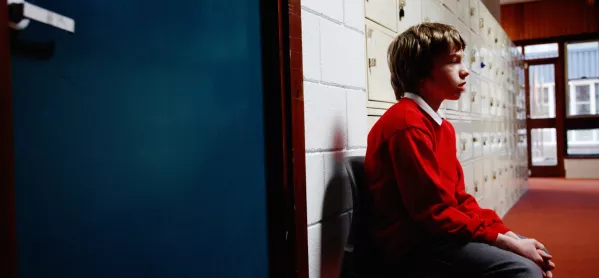Weekly highlights: Exclusions, ECF, behaviour and more

News
The big news at the start of the week concerned the ambitions of the newly appointed children’s commissioner and former academy trust chief Dame Rachel De Souza, which include wanting to see an end to exclusions and “off-rolling”, as exclusively revealed by Tes on Tuesday.
We also reported how the full opening of schools is progressing, with official figures showing that attendance was at 85 per cent nationally by Friday, despite almost one in five reporting that ‘bubbles had burst’ at their schools, forcing whole classes or year groups to be sent home to isolate due to a positive Covid test.
Meanwhile, on Wednesday the National Audit Office unveiled a major report into the Department for Education’s catch-up programme. It revealed that fewer than half of the pupils who have started to receive tuition so far are from low-income families eligible for pupil premium funding, and that one-fifth (£200 million) of the government’s original £1 billion Covid catch-up fund was recycled from existing education budgets.
There was a lot of news this week on how this year’s GCSE and A-level grading is expected to work in practice. On Wednesday, teachers and education experts warned that the government’s decision to give students advance sight of external tasks used as a basis for their grading will lead to a “car crash”.
Then on Thursday, Ofqual’s interim chief regulator, Simon Lebus, and interim chair, Ian Bauckham, both spoke at headteachers’ union conferences on the latest plans for the grading of GCSEs and A levels this summer - we covered both events and also put their key points into a must-read news briefing here.
Finally, we began to reveal how much councils expect to lose from school budgets after the DfE changed the way pupil premium funding is allocated this year, with two councils estimating funding gaps of more than £800,000. The head of the UK’s biggest teaching union called on the DfE to “come clean” about how much money it will save by the change - read the full story here.
Features
With pupils perhaps still unused to being back in class and talking and collaborating with one another again after so long in lockdown, this teacher offered up some ideas to get them chatting again - including by turning to a classic Radio 4 game.
Regarding students who know they are not sitting an exam this year, perhaps the bigger issue for teachers is how to keep them motivated. Yousuf Hamid offered up some ideas on how to talk students through this situation to make them realise that their time in school is not only defined by exams.
One of the concerns with the return to school is that behaviour issues may rear up again - but there is a secret ally in this fight that schools are increasingly turning to: data. Behaviour expert Amy Forrester outlined how this can be used to your advantage and the long-term benefits it can offer.
And with just six months to go until the Early Career Framework comes into life, we offered up a guide from two teachers on everything schools need to know about its implications - and why it could be a positive change across education.
And ahead of the World Education Summit taking place next week, we looked at a new global learning survey that is aiming to understand how children see their own learning journeys and how this could help inform assessments beyond more traditional, and potentially outdated, frameworks.
Elsewhere, we examined how international schools managed to keep a sense of community and togetherness during the pandemic - despite pupils, parents and teachers often being stuck in other parts of the world - ensuring that the indefinable essence of what makes a school so special was retained.
Finally, while Red Nose Day may not be able to take place with its usual fun and games due to social distancing guidelines, there are still ways in which schools can celebrate this traditional day of charity and goodwill.
You need a Tes subscription to read this article
Subscribe now to read this article and get other subscriber-only content:
- Unlimited access to all Tes magazine content
- Exclusive subscriber-only stories
- Award-winning email newsletters
Already a subscriber? Log in
You need a subscription to read this article
Subscribe now to read this article and get other subscriber-only content, including:
- Unlimited access to all Tes magazine content
- Exclusive subscriber-only stories
- Award-winning email newsletters